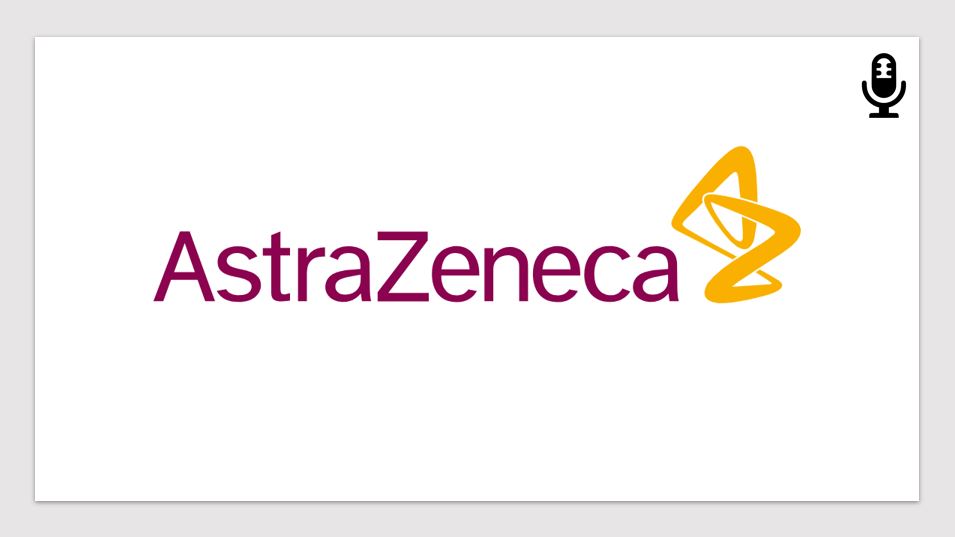Marketing & Strategy
AstraZeneca reveals success behind company’s recognition at the PRIME Awards

Marketing & Strategy: The annual PRIME Awards were recently celebrated by the industry and recognised the best and brightest in healthcare communications and marketing in the pharmaceutical and life science industry.
AstraZeneca was awarded the GPs’ Choice: Pharmaceutical Company of the Year 2021. GPs who nominated AstraZeneca praised the company for their effort in providing the world with a COVID-19 vaccination with no profit, and for their diabetes medications.
In an interview with Health Industry Hub, Martin Haigh, Business Unit Director, Biopharmaceuticals, AstraZeneca reflected on this recognition, discussed how the customer engagement dynamics shifted since the start of the pandemic and the key business and customer trends shaping 2022.
Martin said “The PRIME Awards recognition is hugely important for AstraZeneca particularly because it’s one that is voted by general practitioners (GPs) themselves. To get their recognition is something we’re really proud of. In addition to our COVID-19 vaccine, we were recognised for the work that we do in providing solutions for patients to help them live better lives with their chronic conditions.”
According to Martin, what differentiates AstraZeneca is twofold. “One is that we offer solutions and products across a range of chronic diseases that GPs manage every day, such as cardiovascular, diabetes and respiratory conditions. The second element is people; the people that we employ in our teams provide a consistent and highly professional service to support GPs in serving their patients, including throughout the pandemic both face to face and digitally.”
Customer expectations of pharma companies have evolved as a result of the pandemic. Martin commented “The use of non-traditional face to face channels has accelerated. GPs expect to be able to get information in different ways and through different digital channels. I was particularly impressed recently by a large webinar which had over 1,000 attendees announcing the TGA listing of our new product. We’ve been transitioning and learning from what GPs want to see, how they want to receive the information, what sort of content works for them, rather than just trying to convert everything from a formula of face to face into a digital format.
“The biggest transition that’s going to happen over the next few years is the need to provide information in ways that really suits GPs. Not everyone is going to have the time to attend a large webinar that goes on for an hour. They will need bite-sized information and we have to build to provide the information when and where people want it and that will mean on demand as well. The key to the future of communicating with GPs is going to involve a range of different ways to interact with them, offering the traditional but also moving right through to the 24 hour digital experience,” he said.
Internally, to embed digital transformation across the different functions of the pharma business, companies need to consider whether they have the internal expertise to facilitate this or whether external resources are required to drive the digital change.
“It needs to be a mixture of both. We need to look to other industries which have already gone through these experiences and are at different parts of that digital transformation journey.
“At AstraZeneca, we’re bringing in that expertise to look at things differently and to get out of our traditional mindsets. I also think it’s about upskilling and building capability with our existing teams. We need to realise that we’re not going to have the complete answers to everything immediately, which also has been a traditional pharma way of approaching thing. We’re going to need to learn from technology companies which work in this particular way and use an agile mindset to continue to build, test, learn and develop,” Martin added.
Traditionally, pharma companies have worked conservatively to ensure they meet their compliance requirements. The question is how to bring the compliance teams on this digital transformation journey where agility and efficiency in decision making are critical in achieving best outcomes and meeting customer needs in digital communication.
Martin noted “It’s an area that can and will need to evolve. I don’t think it’s going to be without barriers with quite traditional mindsets when many of the ways we operate were set when sales representatives were using printed detail aids and leave behinds. That’s not going to work. We need to think and have ways of being flexible.
“I really support the move to a principles-based Code of Conduct. We’ll need to continue to evolve and test because we can’t plan for every scenario in this new world. We will need to take a really pragmatic approach. I don’t think it’s a question of ‘can we?’ but a question of we have to, otherwise we’re not going to be successful.”
Martin discussed the business and customer trends that will be shaping 2022 and the key success factors for pharma companies to be able to grow and meet their business needs.
“The first trend is integrating into the new normal in the way we communicate through face-to-face engagements and mix that up with digital engagements and channel preferences. I think doing that successfully is going to be a huge challenge. The next piece is building capabilities in this new digital world and understanding how this channel works which is a huge learning curve for everybody in the industry.
“Access will continue to be challenged in terms of ensuring we get appropriate reimbursement for medicines in a timely manner. That’s going to become even more difficult with pressures on the budget. We have the environment to allow for innovation. The key to innovation is bringing all key stakeholders of the healthcare system together. There are new innovations in terms of science and new products, but what we need to do is make sure that we’ve got a healthcare system that can support the delivery of the innovations with timely reimbursement as well as companion diagnostics, appropriate referral pathways and the ability to ensure that patients are managed according to the guidelines,” he concluded.
News & Trends - Biotechnology

AusBiotech appoints new CEO: Former Sanofi corporate affairs and sustainability leader takes the helm
Biotech News: AusBiotech, the nation’s leading industry body for the biotech sector, has named former leader at Sanofi, Rebekah Cassidy, […]
MoreNews & Trends - MedTech & Diagnostics

Federal government invests in Siemens Healthineers scanner to ‘reduce wait times’ for cancer diagnosis
MedTech & Diagnostics News: The Albanese Government is investing $12 million through the 2024–25 Budget, to purchase and install a […]
MoreNews & Trends - MedTech & Diagnostics

Cardiac device benefits face more cuts, while technical services remain secure in the short term
MedTech & Diagnostics News: Starting from July 2024, Cardiac Implantable Electronic Devices (CIED) listed on the Prescribed List (PL) will […]
MoreNews & Trends - Biotechnology

CSL’s world-first gene therapy heads for MSAC evaluation
Biotech News: CSL’s world-first gene therapy for haemophilia B is scheduled for consideration at the upcoming Medical Services Advisory Committee (MSAC) […]
More